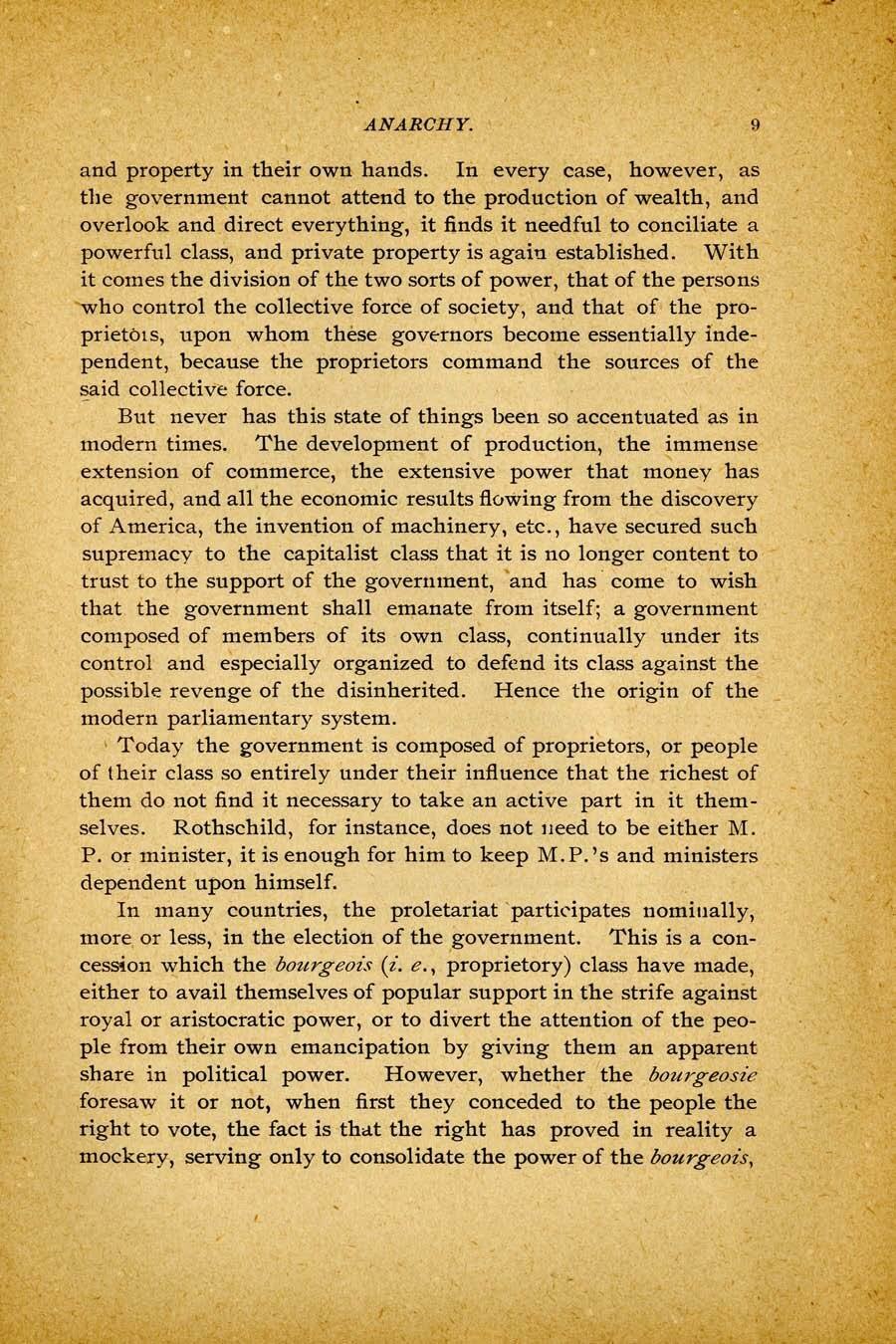and property in their own hands. In every case, however, as the government cannot attend to the production of wealth, and overlook and direct everything, it finds it needful to conciliate a powerful class, and private property is again established. With it comes the division of the two sorts of power, that of the persons who control the collective force of society, and that of the proprietors, upon whom these governors become essentially independent, because the proprietors command the sources of the said collective force.
But never has this state of things been so accentuated as in modern times. The development of production, the immense extension of commerce, the extensive power that money has acquired, and all the economic results flowing from the discovery of America, the invention of machinery, etc., have secured such supremacy to the capitalist class that it is no longer content to trust to the support of the government, and has come to wish that the government shall emanate from itself; a government composed of members of its own class, continually under its control and especially organized to defend its class against the possible revenge of the disinherited. Hence the origin of the modern parliamentary system.
Today the government is composed of proprietors, or people of their class so entirely under their influence that the richest of them do not find it necessary to take an active part in it themselves. Rothschild, for instance, does not need to be either M. P. or minister, it is enough for him to keep M.P.'s and ministers dependent upon himself.
In many countries, the proletariat participates nominally, more or less, in the election of the government. This is a concession which the bourgeois (i. e., proprietory) class have made, either to avail themselves of popular support in the strife against royal or aristocratic power, or to divert the attention of the people from their own emancipation by giving them an apparent share in political power. However, whether the bourgeosie foresaw it or not, when first they conceded to the people the right to vote, the fact is that the right has proved in reality a mockery, serving only to consolidate the power of the bourgeois,
